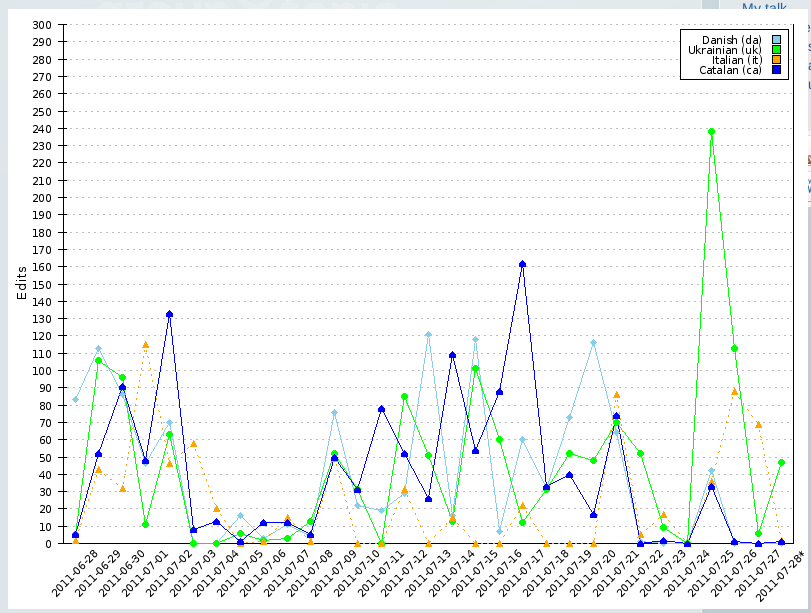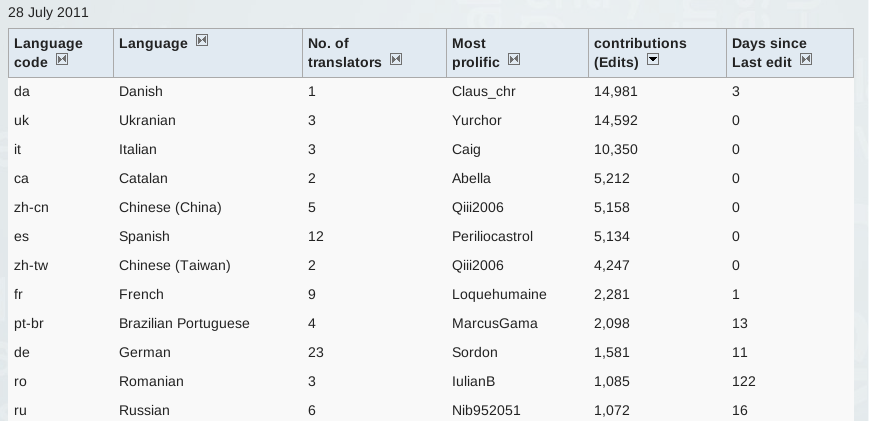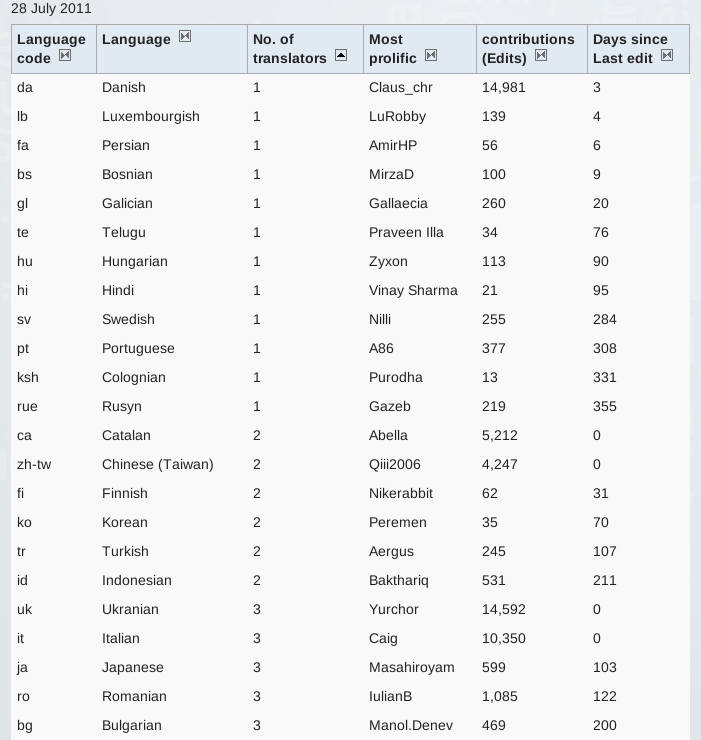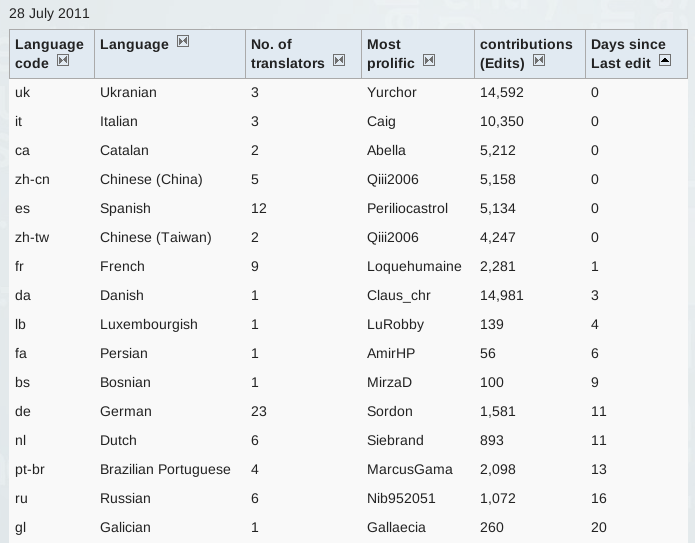Today, Tomorrow and Beyond…. – Part 1
This week I was asked whether it was possible to draw statistics on the status of translations of UserBase pages. In fact it’s very easy to see the status of languages on specific pages. The language bar shows, beside each language name, a small box, indicating roughly the status. Hover over it and you will see what percentage of “strings” or “messages” have been translated into that language. This, though, was not what the speaker was looking for. If there is any way of getting a status report for every page in every language, I haven’t found it. When you consider how big that would be, it probably isn’t even sensible to look for it. Meanwhile, though, I do have some interesting stats for you. All the stats were gathered on the 28th July.
First we have the four most active languages over the past month:
Of course those four are not the only ones with a good score of contribution. Here is the Roll of Honour:
You’d think that the languages with the highest number of translated strings might have a large team – and you couldn’t be more wrong. Team size has little correlation with output, as the next table shows:
Of course, a more realistic measure of activity is to look at how recently the work was done:
Worryingly, though, look at the reverse of that:
So – Where are we Now?
While there is always room for more, I’m happy that we are steadily increasing our translations on UserBase. On Techbase, the system is still very new, and before it can be as useful as we would like there needs to be some concensus as to which pages can usefully be translated. I suspect that a glance at the footer, where the “last edited” date is visible, would give some clear hints for some pages, yet there are others where what was written five years ago is still valid and needs no change. Clearly, then, only the people who know a particular project or process can make that decision.
We have made considerable effort to get a useful system. For instance, the markup described in our help pages has grown out of long discussions with Blueck and Yurchor, and at times other translators too.
- The system happily allows translators to work with the off-line tools that are familiar, if that is the wish.
- We have a HowTo for ensuring that your pages are capable of being created in Docbook format at http://userbase.kde.org/How_To_Convert_a_UserBase_Manual_to_Docbook
- We are close to having a customisable “Create a Book” where the user can select the pages that are helpful to his own interests and create a .pdf format booklet.
The Next Step?
Read Part 2!







